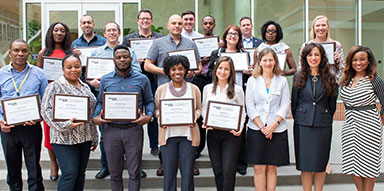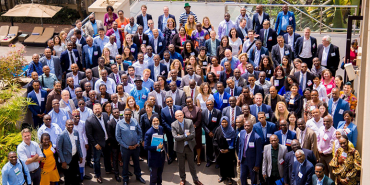We invite you to partner with CHHS in our efforts to serve as a leader in the US and globally in health and humanitarian systems. As a sector with tremendous and constant need, it provides many opportunities for companies and individuals to have a substantial impact.

New ideas and new tools are born in the robust research environment supported by the Center. Solutions and improvements produced by researchers provide businesses with the high level of competitiveness that is critical to their success in the marketplace both at home and overseas.

Whether you’re involved in disaster relief, public health operations, or long-term development for non-governmental organizations, industry, government, or the military, you’ll gain expertise and develop the skills to improve your operations and navigate the challenges and trade-offs you'll face in supply chain.

CHHS reaches out to students, educators, businesses and the community in an effort to increase exposure and accessibility to Health and Humanitarian system innovations through a variety of educational programs, partnership opportunities and outreach activities.

You can stay in touch with all things CHHS through our news feed and social media. CHHS collaborates with and trains some of the world's most innovative thought leaders, professionals, academics and researchers on a variety health and humanitarian topics. We invite you to attend one of our upcoming events and trainings to engage further with our initiatives.

